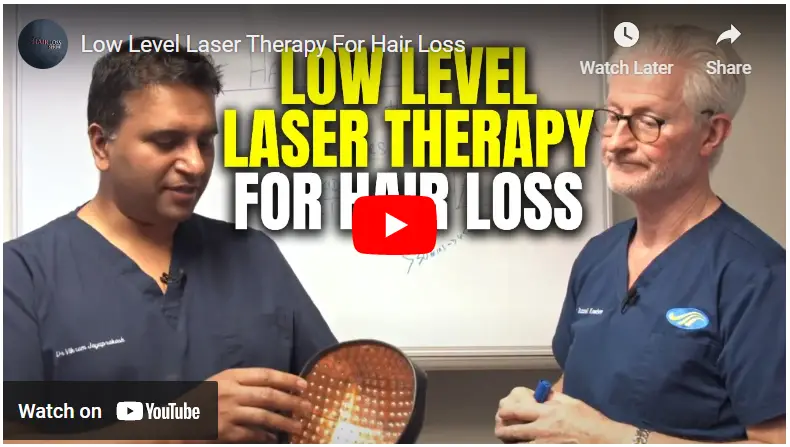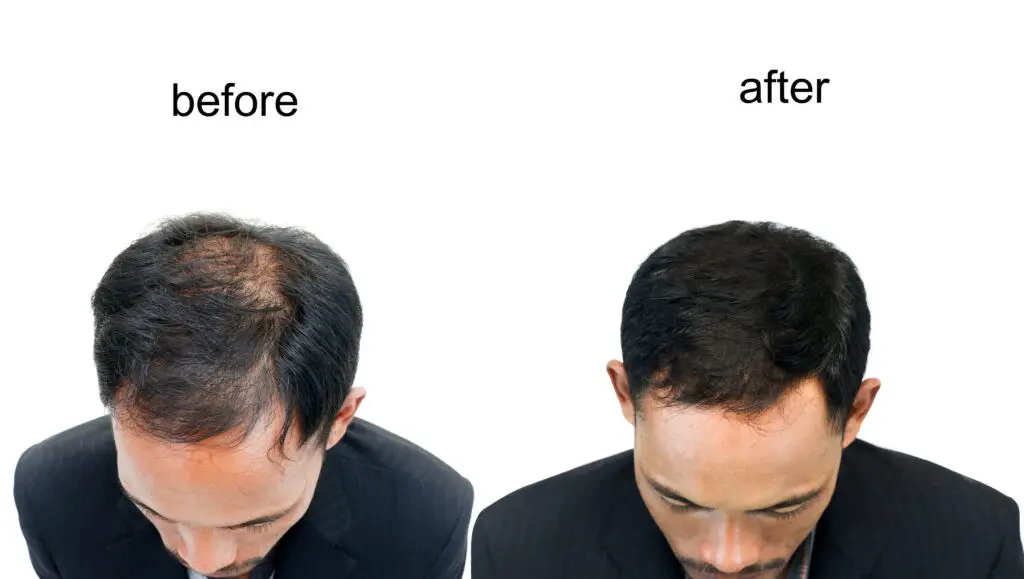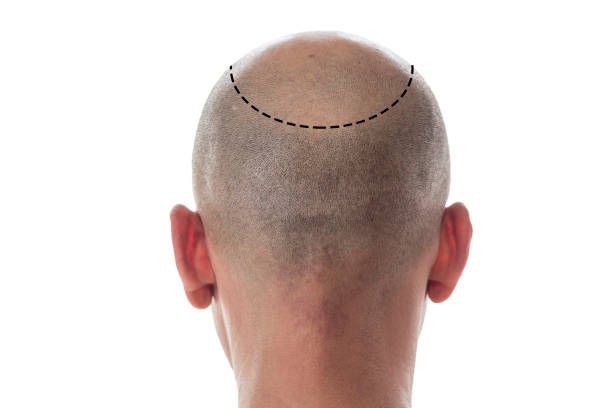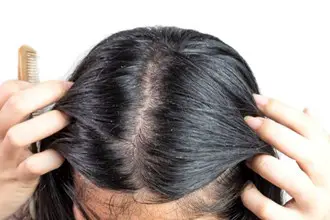If you have been experiencing crown of your-head hair loss, thinning hair, bald spot, and receding hairline that won’t stop, it may be time to visit an endocrinologist for hair loss.
Endocrinologists specialize in hormone-related conditions and disorders, including hormone imbalances that can lead to retrograde alopecia (also known as hair loss). Suppose you don’t feel comfortable with the idea of seeing your general practitioner, gynecologist, or dermatologist, or you don’t feel as if they’ve found the root cause of your problem. In that case, an endocrinologist can help you with hair loss treatment and provide you with some answers.
Introduction
In general, we can expect to shed 50-100 hairs daily as part of our regular stages of the hair growth cycle.
But what happens if you notice signs of hair loss, you notice that the frontal hairlines are receding, or you notice that an area of hair loss has developed around your head. Hair loss is a devastating experience, and finding the right hair doctors to consult could be crucial to finding a solution that works or managing the ongoing issue.
Hair loss could be caused by various causes and medical conditions, so the management and diagnosis of the loss could require a unique medical field. Searching online for a “hair loss specialist’ could provide a plethora of hair loss specialists who are individual practitioners and clinics, a few who are self-appointed experts.
Should I see an dermatologist or endocrinologist for hair loss?
Here’s a brief overview of the medical specialties or hair doctors areas that are concerned with treating hair loss:
1 Dermatologist
The term dermatologist refers to a physician trained in treating and diagnosing all ailments affecting the hair, skin, and nails. The initial education they receive in general medicine allows them to practice in other medical specialties. After completing their training, they focus on dermatology training and research before being awarded the Certificate that demonstrates Completion of Specialist Training (CCST).
The potential for a dermatologist is enormous, as more than 2000 skin conditions affect women, men, and children of all ages. However, a few ailments, such as acne, eczema, or skin cancers, are more often diagnosed and treated. Hair loss is common, and visiting an experienced dermatologist like Dr. David Fenton, who has spent a long time studying and treating alopecia-related conditions, is essential to an effective treatment for your condition.
A dermatologist will conduct various tests and provide medical treatment for alopecia.
2 Endocrinologist
An endocrinologist is a specialist in studying hormones and their role in bodily functions. They are also known as endocrinologists, clinical endocrinologists, or hormone doctors.
Endocrinologists are trained to diagnose and treat various hormonal disorders, including thyroid disease, adrenal gland disorders, pituitary tumors, growth hormone deficiency, and diabetes.
Hormones play a significant role in hair loss. The most common cause of hair loss is male pattern baldness, which is caused by increased testosterone levels in men’s bodies. This increases the production of DHT, which causes follicles to shrink and hair to thin out or fall out altogether.
Studying the body organs that release hormones could offer treatment to restore hormonal balance, thereby resolving the hair loss that follows.
3 Gynaecologist
Hair loss for women could be caused by a range of health conditions. Gynecologists play a significant aspect in women’s healthcare. They can often provide diagnosis, treatment, and control of these ailments that will usually treat the hair loss associated with it.
Polycystic Ovarian Syndrome (PCOS) is significant because studies show that 67 percent of women with alopecia suffer from PCOS. Gynecologists can also assist in managing the lifestyle and diet, which could be a contributing cause or reduce hair loss due to birth control pills. If you are believed to suffer from PCOS, and your gynecologist is concerned, she may recommend an endocrinologist to confirm PCOS.
Conclusion & Next Steps for Suffering from Hair Loss
In conclusion, we can see that hair loss is a common problem for many people. There are many ways to combat it, some of which are more drastic than others. However, the best way to take care of your hair is to stop it from falling out in the first place. This can be done by eating a healthy diet DHT blocker food and reduce stress and alcohol.
The next steps is to find dermatologist or endocrinologist for hair loss near me if your sufferers from crown balding are to try different methods, such as Rogaine or Propecia, until something works for them.
But the first step really you should be to consult your GP to seek advice and medical evaluation, and if needed, they can send you to the appropriate medical specialist or professional to cure hair loss.
- AI Powered Bald Filter Online 2024: See Yourself with No Hair! - January 19, 2024
- Harklinikken Bad Reviews 2024: Analyzing Negative Feedbacks - January 18, 2024
- How to Get the Alex Eubank Hair | Step-By-Step Tutorial 2024 - January 18, 2024







